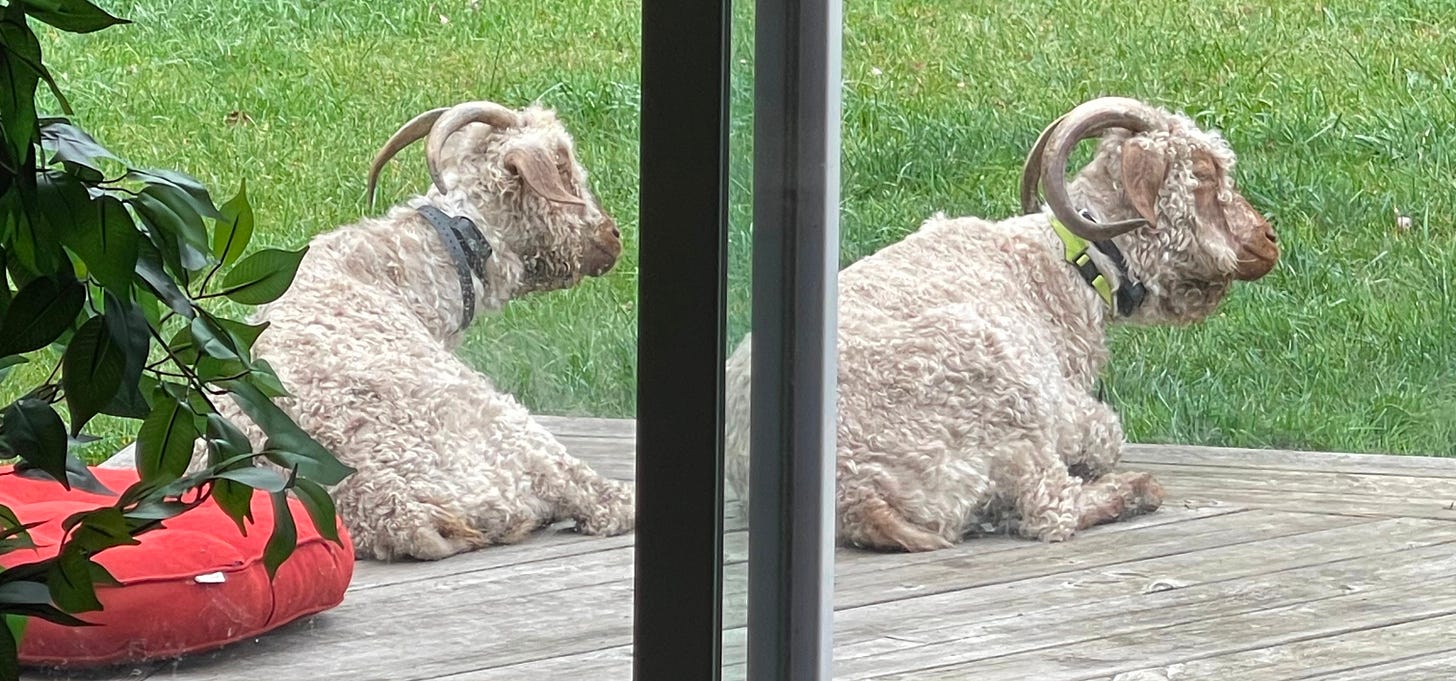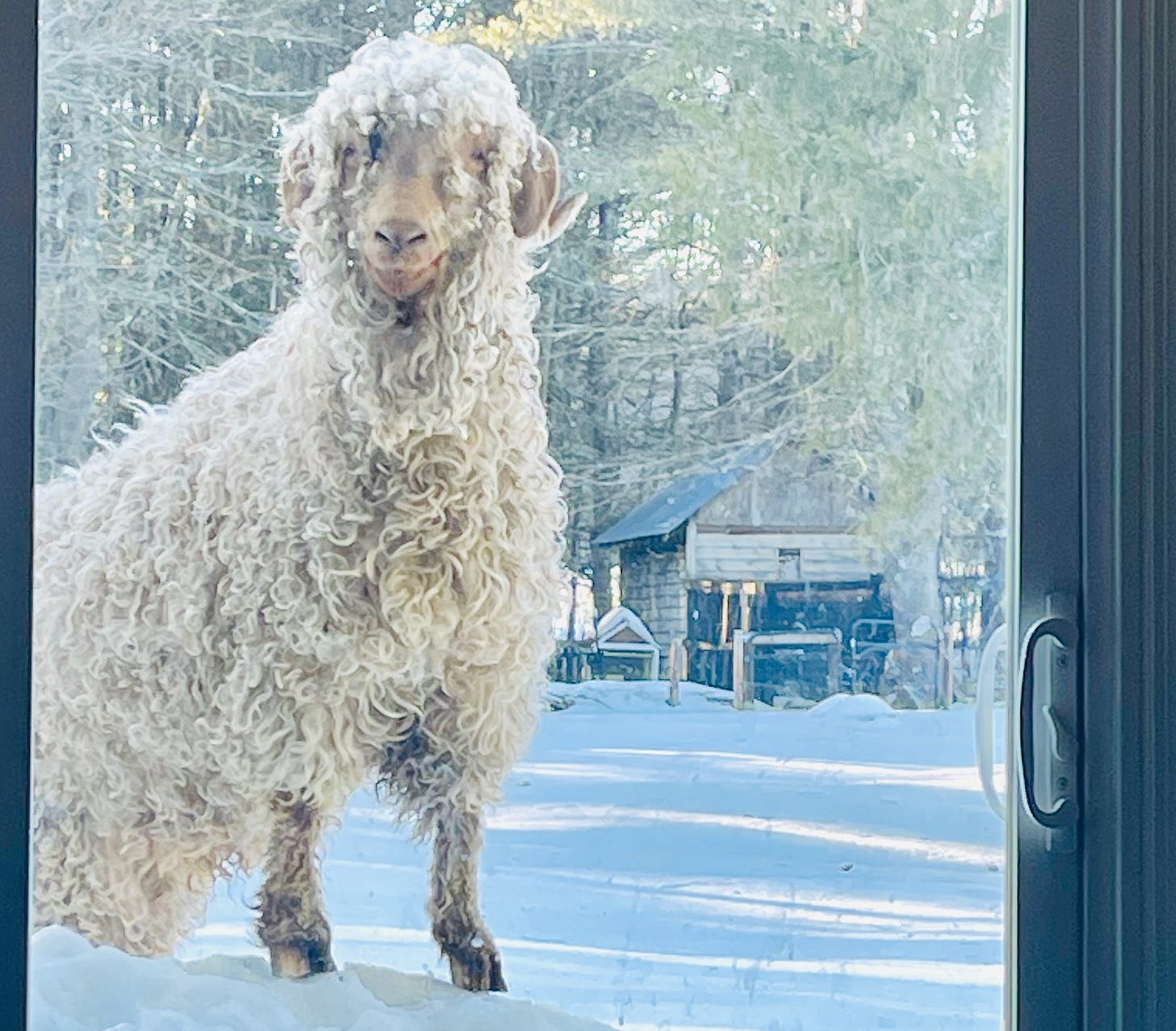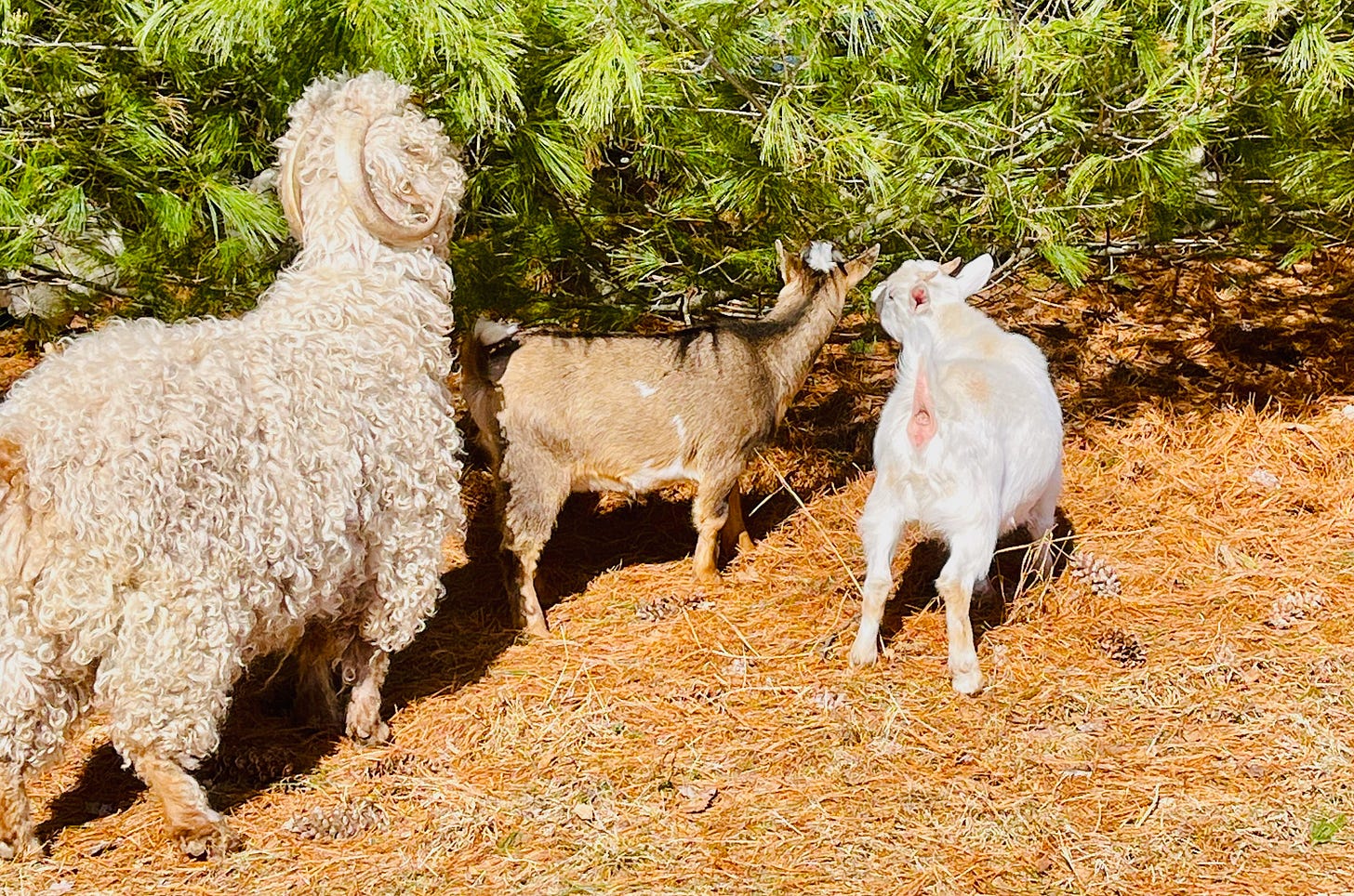Writing Hurts:
So Here's a Story about Our Grouchy Goat, Fred
This month is an organizational month for me—and plans for Whippoorwill are underway (!!!). But this morning, I have been attempting to write an essay about my mother’s addiction—a tough topic that is stressful and upsetting, even more so one week after Mothers’ Day.
To uplift after this morning’s effort, I will share here a convoluted story about our grouchy goat, Fred. It will be sad for a few minutes, but then have a happy ending. Well, happy for a goat, anyway.
Last fall, we took in Fred and Beatrice, two elderly, twin angora goats. (They came with names they did not respond to—Sugar and Atlas—but Atlas is the name of the main character in my next novel, so that wasn’t going to work…) They were goofy, got in trouble constantly, and kept us busy fixing fences, but they were also pretty chill and loved napping on the deck.
One cold night in February, Bea passed away.
The next morning, Fred seemed distraught. He paced and wouldn’t eat. We had Bea’s body wrapped in blankets in the garage where she had passed. For the time being, I bundled up in a heavy coat and winter gear (February in the Adirondacks is bitterly cold) and sat outside in what we call the Fred Shed—pretty self-explanatory, I think, but it’s a shed where Fred hangs out. The Fred Shed.
I pulled out a camping chair and opened my phone to my kindle app and began reading to him—Marcus Aurelius, of course, because obviously a goat of his age and dignity would be a stoic, right?
I’ve never had goats—do they have a concept of mortality? Grief?
Fred watched me, wary for a bit, and then began to munch his hay.
Later that day, I suggested we let him see Bea’s body. I’ve never had goats—do they have a concept of mortality? Grief?
We led Fred to the garage, and he sniffed Bea from head to tail and then simply stood beside her.
“Should we make him leave?” My husband asked after some time had passed.
“I’ll stay with him as long as he wants to stay with her,” I replied, pulling my coat tighter.
Soon, Fred walked away, and my husband and I gently moved Bea’s body to the yard cart to move to the woods behind the small barn. My husband pulled the cart, and Fred and I walked side-by-side behind them, forming our own little second-line.
As we walked by the feed can, Fred paused.
“We are in a time of grief, Fred, do not attack the can,” I muttered.
He attacked the can.
My husband grabbed Fred’s massive horns and led him to the barn, while I tried to tighten the can lid. While opening the barn door, Fred slipped from my husband’s grasp and charged the can—and me. I hopped up on the lid to keep Fred from the feed, as he sped towards me. My husband caught him just in time and put him in the barn. Apparently, this stage of Fred’s grief was Anger.
As winter dragged on, I worried about Fred being lonely. He seemed happier munching his hay on the back deck and watching us through the sliding glass door. I brought his favorite snack to him from time to time—pears—and he seemed to be doing okay.
Oh no. Fred’s going to break the house.
Then one day, I watched as he tried to use his mouth to open the sliding glass door—and then tried to headbutt the glass when it didn’t open. Oh no. Fred’s going to break the house.
Thankfully, the world was beginning to thaw, so we made the decision to bring home some goat friends. But how do goats decide if they like each other? Will he try to hurt a baby goat? Do we go slowly in introducing them?
My husband brought home two 4-month old Nubian twin goats, and we named them Judy Leigh and Aunt Tiff. They were so small and scared—and Fred was so grouchy. How was this going to work?
They took one look at him, and it was done: Granddad Fred scoffed at them but immediately led them back to the barn, and they have followed him ever since. No more trying to open the sliding glass door. Fred watches them and headbutts them gently—maybe a bit harder during dinner time. If he is out of sight, the ladies begin yelling until they see him and then frolic to his side. Where Fred goes, so goes Judy Leigh and Aunt Tiff.
He’s still a Grumpy Gus, and he still headbutts me if I dare approach him without treats, but he seems happier now. For a goat.
And this weird little story of a goat’s grief-cycle is a reminder: stuff is hard, and it hurts. But find your Judy Leigh and Aunt Tiff and smile—even for just a moment. And maybe don’t headbutt the people who love you.




